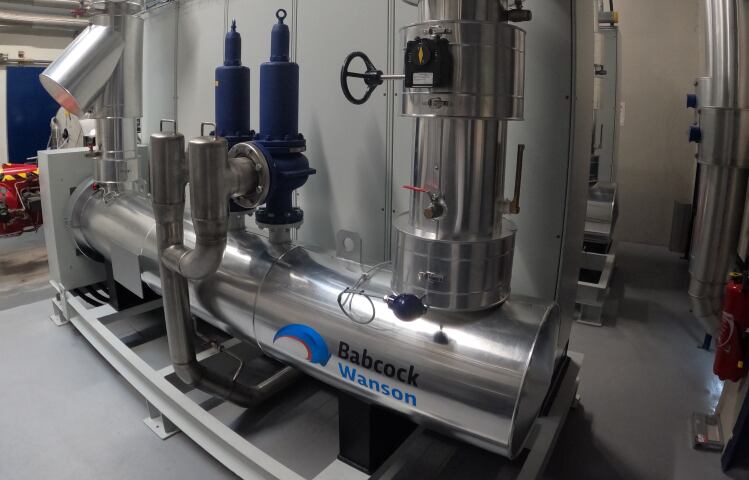The plant’s ice cream production no draws on no energy from fossil fuels, with all the electricity supplying the factory coming from sources such as wind, hydro and solar.
Forecast to take effect this summer, the initiative was led by employees at the factory site, which involved the installation of an electric boiler (pictured) to replace the existing gas version. Mars expected the change to save 600 tonnes of CO2 a year.
World of tomorrow
Florence Mouls – vice president for supply at Mars Wrigley Europe, CIS & Turkey – said: “The world we want tomorrow hinges upon the responsibility of businesses to make changes today, which is why we’re pioneering projects such as the first 100% renewable energy factory in the Mars Group.
“This is a key milestone for both Mars Wrigley in Europe, and Mars, Incorporated as we continue to make steady progress towards achieving net zero throughout our value chain by 2050.”
The transition to 100% green electric is the latest in a series of steps in Mars Wrigley’s energy transition journey which began in 2013. Since then, the Steinbourg factory has reduced gas consumption by up to 50% due to energy recovery via a heat pump.
Reduced water consumption
The plant has also reduced water consumption by 30% per tonne of ice cream produced and reduced power consumption thanks to the optimisation of chocolate brewing time.
The transition to renewable energy formed part of the ‘Sustainable In a Generation’ plan set up by Mars to achieve its goal of net zero emissions throughout its value chain by 2050. This includes all direct and indirect emissions in the value chain, including those created by suppliers.
Meanwhile, Ian Gadsby, managing director of Ylem Energy, discusses the hidden potential of onsite energy generation for manufacturers and the state of global energy generation and its impact on costs in this exclusive podcast interview.





